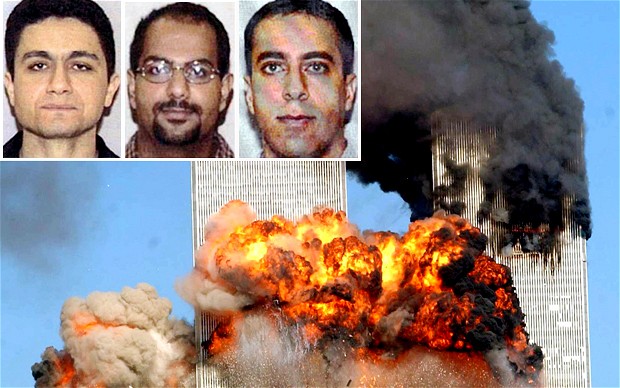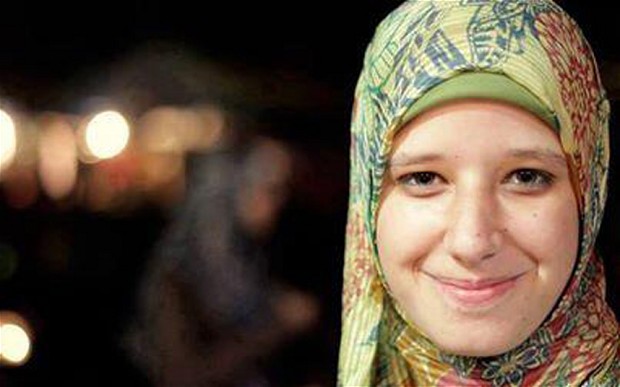Interview with Kevin Barrett, summarizing the main features of postmodern imperialism, considering the main tendencies within political Islam as epitomized by Azzam, Bin Laden and Zawahiri
Middle East
Interview on No Lies Radio: Egypt, currents in political Islam
- Written by Eric Walberg Эрик Вальберг/ Уолберг إيريك والبرغ
The logic of 9/11: US-Saudi-Pakistani connections
- Written by Eric Walberg Эрик Вальберг/ Уолберг إيريك والبرغ
 Last week, Congressmen Walter Jones and Stephen Lynch introduced a resolution urging President Obama to declassify the legendary “28 redacted pages of the Joint Intelligence Committee Inquiry of 9/11” issued in late 2002, which point to official Saudi involvement in 9/11. After much lobbying, and under an oath of secrecy, Jones was allowed to read the censored document: “I was absolutely shocked by what I read. What was so surprising was that those whom we thought we could trust really disappointed me,” he told IBTimes' Jamie Reno.
Last week, Congressmen Walter Jones and Stephen Lynch introduced a resolution urging President Obama to declassify the legendary “28 redacted pages of the Joint Intelligence Committee Inquiry of 9/11” issued in late 2002, which point to official Saudi involvement in 9/11. After much lobbying, and under an oath of secrecy, Jones was allowed to read the censored document: “I was absolutely shocked by what I read. What was so surprising was that those whom we thought we could trust really disappointed me,” he told IBTimes' Jamie Reno.
PNAC (Project for a New American Century) published a “grand strategy” in 2000 calling for the US to maintain its unrivaled superpower status, though this might require a “new Pearl Harbor” to justify launching preemptive wars against suspect nations. 9/11 happened as if on cue the next year, suggesting to many not so much a ‘grand strategy’ as a ‘grand conspiracy’. As Bush told the 9/11 Commission, to justify invading Afghanistan and get Bin Laden, it was necessary to await “another attack on America”.
So who ‘did’ 9/11?
As the West invaded the Muslim world in the 19th–20th cc, local Muslims naturally resisted the occupation—both physical and cultural—of their world. One can only admire the heroic resistance in Aceh (present-day Indonesia) to the Portuguese in the 16th century and Abd al-Qadir’s guerrilla movement against the French in Algeria in the 19th century. Even the Saudi tribe’s Wahhab-inspired resistance to the distant Ottoman court, already decadent and aping the imperialists, deserves respect, though the Saudi Bedouin were notorious for their cruelty and killing of captives. The PLO hijackings of the late 1960s–early 1970s (recall Leila Khaled) and the ongoing intifadas by Palestinian youth are classic jihad: individual duty (fard ayn) in defense of one’s home and religion, heroic and justified given Israeli aggression and unwillingness to negotiate the return of Palestinian lands.
From the 1970s, however, there arose a very different movement of resistance—terrorists, who use indiscriminate violence intended to provoke the imperialists and their local Muslim representatives into even greater repression, in the hope of sparking revolutionary war. They are the product of the imperial times, aping 19th European anarchists who threw bombs at monarchs, eventually launching WWI, and 20th century groups such as Baader Meinhof who robbed banks and bombed buildings to protest the Vietnam war. Now it was the humiliation of the Arab defeat by Israel in 1967, and the Soviet occupation of Afghanistan.
Interview on Radio Islam: Egypt-US relations
- Written by Eric Walberg Эрик Вальберг/ Уолберг إيريك والبرغ
interview in 2nd part (30 minutes into the program) on Egypt-US relations
Interview on Rense.com: Egypt, Syria, postsecularism
- Written by Eric Walberg Эрик Вальберг/ Уолберг إيريك والبرغ
Radio interview with Eric Walberg 4 September 2013, reviewing the Morsi government's record, looking at the Syrian stand-off, and discussing the rise of 'postsecularism'.
http://k002.kiwi6.com/hotlink/ojn6m074lq/rense.20130904.3of3.mp3
Egypt’s ‘color coup’
- Written by Eric Walberg Эрик Вальберг/ Уолберг إيريك والبرغ
 A new tactic has been added to the US democracy promotion arsenal, where ‘color revolutions’ are too difficult, and ‘postmodern coups’ fail.
A new tactic has been added to the US democracy promotion arsenal, where ‘color revolutions’ are too difficult, and ‘postmodern coups’ fail.
The smoke is already clearing in the wake of Egypt’s latest coup—the whodunnit and why. All traces of the post-2011 attempts to reform and clean up the corruption of the previous 40 years are systematically being erased. All appointees under Morsi are being replaced by military officials and old-guard Mubarakites. A state of emergency and trials by military courts are in place. Complete disregard for legal norms—presided over by the Mubarakite head of the Supreme Constitutional Court and interim President Adly Mansour—is the order of the day.
President Morsi is accused of conspiracy against Egypt—with the hapless Palestinians. The respected 70-year-old Muslim Brotherhood (MB) Supreme Guide Mohammed Badie is under arrest, and MB Secretary General Mohammed el-Beltagi, whose daughter Asmaa was murdered—shot in the back and chest—in hiding, themselves accused of murder. Documented murders, like the gassing and shooting of 36 Muslim Brotherhood prisoners in a truck this week by police, are ignored or applauded in the press and on TV, now safely back in the hands of Mubarakites, with no risk of censure (this passes for ‘freedom of the press’).
The horrendous death toll made President Obama squirm a bit, and cancel some F-16 fighter pilot sales. He even nixed the comradely joint “Bright Star” military exercises (what possible scenario could make US and Egyptian troops fight shoulder-to-shoulder?).
More Articles...
Page 24 of 39





